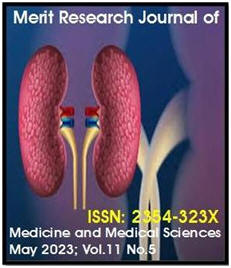
|
|
|
|
|
|
/ / MRJMMS Home / / About MRJMMS / / Submit Manuscripts / / Call For Articles / / Editorial Board / / Archive / / Author's Guide / /
|
Other viewing option
• Full text •Reprint (PDF) (136 KB)
Alrajhi
NM
|
Original Research Article Prevalence of Depression, Anxiety and Insomnia among Healthcare Workers during the COVID-19 |
|||
|
Nahlah Mohammed Alrajhi*, Ahmed Alkhalifah, Ghada Alarfaj, Mostafa Kofi |
||||
|
Consultant, Family and Community
Medicine Department, Prince Sultan Military Medical City, Riyadh |
||||
|
Abstract |
||||
|
During the
pandemic of covid-19, many physicians got anxiety, depression,
and insomnia that affected their performance at work and daily
life. According to the psychiatry department of Imperial College
in London, they reported that it is necessary to assess the
mental health of the health workers who were on the frontline
during the COVID-19 pandemic and to evaluate the pattern of
sleep and other issues that may affect their mental status. The
aim of the study is to assess and analyze the existing evidence
on the prevalence of depression, anxiety, and insomnia among
healthcare workers during the COVID-19 outbreak. A
cross-sectional study will be conducted in PSMMC, Riyadh.
Assessing the psychosocial effect of COVID-19 among health care
workers. sampling size and sampling procedure: 380 HCWs will be
included in the estimated proportion of anxiety and depression.
All doctors and nurses who met the criteria will be included in
the study. Data collection form: Data will be utilized by
conducting an online survey to decrease the risk of spreading
infection through papers. The following variables will be
collected and entered into Microsoft Excel 2010 x demographics x
Medical characteristics x Job title and location x The
psychosocial effects. The characteristics of the study
participants are shown in Table (1). The mean age of the
participants was 31.81(±7.64) years, and more than half of the
participants were males at 52.15%, and 61.9% were single. Most
of the participants were doctors at 76.7%, the vast majority
(97.9%) were working during COVID-19, and 94.9% managed
suspected COVID-19 cases, with a 73.3% high exposure level. For
depression, more than half (59.32%) of the participants reported
a loss of interest or feeling low, 39.41% and 33.90% agreed that
the COVID-19 pandemic affected their daily life routine
including feeling locked down and loss of interest in fun
activities. For anxiety, the majority of the respondents
reported experiencing anxiety at 83.9%, and almost half of them
reported stigma thoughts and somatization at 49.58%, and 50.42%,
respectively. Almost half and even more than half of the
participants agree that the COVID-19 pandemic affected their
daily life routine. In regards to insomnia, 61.44% said that
their sleep pattern was affectedCOVID-19D 19 Pandemic, 75.85%
has their social life negatively affected, and 82.20% had their
work performance modified to follow the standard operating
procedure. Data is shown in Table (2). The mean score of anxiety
by the characteristics of the participants is shown in Table
(3). The mean of the total anxiety score was 16.77(±3.98).
Females showed a significantly higher mean score of anxiety
compared to males at 17.55(±3.82) vs. 16.16(±4.01), with a
p-value of <0.001. The anxiety score was the highest among
doctors at 16.38(±3.93), with a significant p-value (0.003). The
anxiety score was also significantly higher among those who were
working during the pandemic, managing suspected cases, and with
a high level of exposure to COVID-19. The mean of the total
depression score was 7.37(±2.69), and it differed significantly
(p <0.05) by gender, marital status, number of children, job
title, working during the pandemic, and exposure level. Females
score was higher at 8.06(±2.48) whilethe males one was
6.73(±2.73). Nurses showed the highest depression score at
8.26(±2.63), and those with high exposure levels showed a higher
score at 7.91(2.59) compared to moderate exposure at
5.89(±2.40). Data is shown in Table (4) For insomnia, the mean
total score was 2.19(±1). It was also significantly higher among
females at 2.36(0.96), and nurses at 2.44(±0.96). Similarly,
those who worked during the pandemic, managed suspected cases,
and were at high exposure levels showed significantly higher
insomnia scores as shownTablee (5). This study explored the
prevalence of anxiety, depression, and insomnia and their
associated factors among COVID-19 HCWs in Saudi Arabia. The
results highlighted that the prevalence of anxiety, depression,
and insomnia are concerning, and considered far higher compared
to what was reported globally in this regard. |
Merit Research Journals© 2023 || Advertisement | Privacy policy.
